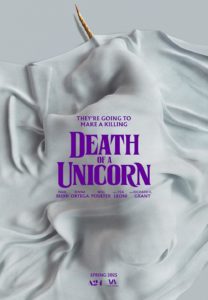 Last night, I saw a sneak preview for Death of a Unicorn[1] at the Alamo Drafthouse[2], which comes out today or Friday and so I must quickly review, lest it all have been in vain. Unfortunately, despite the straightforward spoiler of the title, it is somewhat difficult to describe.
Last night, I saw a sneak preview for Death of a Unicorn[1] at the Alamo Drafthouse[2], which comes out today or Friday and so I must quickly review, lest it all have been in vain. Unfortunately, despite the straightforward spoiler of the title, it is somewhat difficult to describe.
Okay. You know Mary Poppins? I’m sure there’s a better example, but I cannot think of one. Anyway, if you leave Mary Poppins out of the movie, it’s fundamentally a movie about a dad[3] who spends too much time at work focused on his career, when really all his kids want is more time with him, not the things he provides for them by working so much? Paul Rudd plays about as far against type as I can imagine in the role of that dad, and his nebbishy helplessness really makes it hard to believe, even though the character is written in a way where it could still work. It’s not to say he was bad in the role, just that I think the casting was too far of a stretch.
Anyway, he and his thankfully college-aged daughter Jenna Ortega are travelling to a corporate retreat where Rudd is hoping to get the promotion that will, after a few years, have them set up for life where she’ll never want for anything ever again, and it’s clear Ortega has heard this song and dance before, because she could not be more done with it. And this “will he or won’t he” family drama schtick might easily have been the entire movie, except that while driving through the nature preserve toward their destination, distracted by a fight and allergies, he plows into a little white horse crossing the road.
Well, okay, it’s not a horse.
A handful of other events ensue, and also the remainder of the cast is introduced, and now the movie is instead (also? probably also) about what the several characters will do with the situation that has fallen into their laps. Have they a panacea? A miracle that will change the world? A way to get rich beyond any dream of avarice? Or, based on Ortega’s research into a pretty cool series of real life tapestries, do they simply have a problem?
One of the genres into which this movie falls should provide a hint.
[1] Eagle-eyed subscribers to this site will note that I did not see Captain America 4, about which fact I have a pretty complicated set of emotions. But it’s probably indicative of something. Especially since the odds of another date night before it leaves theaters is…. low.
[2] Side note from the half hour of cool random film geekery: did you know that the Three Stooges made a movie (well, probably a short, but I don’t know for sure) about traveling to Venus to meet a unicorn, and also it was a musical, and also it was in 1959??? I knew Moe lived into the 1970s, but I had no idea they were still working that late! …and still in black and white that late, though if it were made for TV I guess that would not be weird after all.
[3] I wonder if they’ve ever made this movie about a mom. I think they have not.
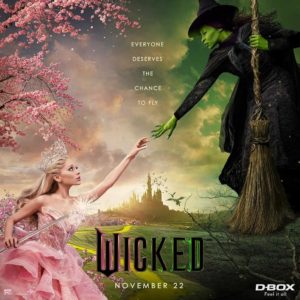

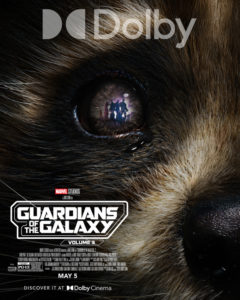
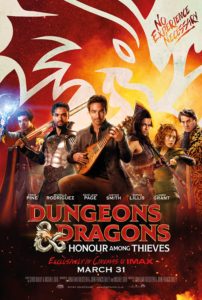
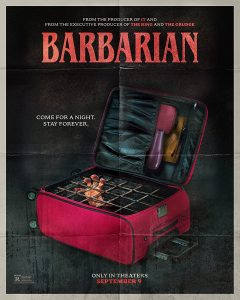
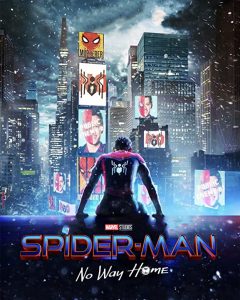 I would be remiss if I did not first point out that in addition to being otherwise fun and sans commercials, the Alamo Drafthouse pre-show is especially useful for movies that require recaps[1], because they can tell you everything you need to know and with mostly a bare minimum of spoilers involved. Although, because reasons, the
I would be remiss if I did not first point out that in addition to being otherwise fun and sans commercials, the Alamo Drafthouse pre-show is especially useful for movies that require recaps[1], because they can tell you everything you need to know and with mostly a bare minimum of spoilers involved. Although, because reasons, the 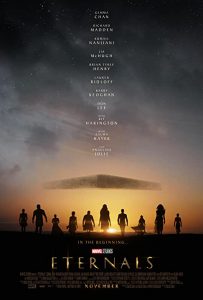 Retroactive continuity is a tool honed to perfection in two art forms[1]: soap operas and superhero comic books. These forms share a lot else in common. They are a) both extremely long-form storytelling where b) the people writing today do not have a plan past the next ten or twelve episodes at the most, c) they both have cliques of characters that mostly hang out together but occasionally cross over with other cliques, and even more rarely all come together for some kind of huge event, and they both d) have dedicated, opinionated fanbases who have stuck around for decades but e) are written so that someone can drop in at practically any moment and be able to catch up.
Retroactive continuity is a tool honed to perfection in two art forms[1]: soap operas and superhero comic books. These forms share a lot else in common. They are a) both extremely long-form storytelling where b) the people writing today do not have a plan past the next ten or twelve episodes at the most, c) they both have cliques of characters that mostly hang out together but occasionally cross over with other cliques, and even more rarely all come together for some kind of huge event, and they both d) have dedicated, opinionated fanbases who have stuck around for decades but e) are written so that someone can drop in at practically any moment and be able to catch up.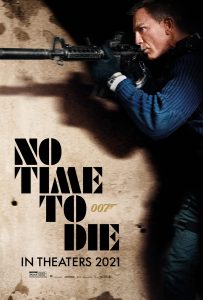 I’m still not entirely comfortable with the fact that all of the Daniel Craig Bond films have shared a continuity and an ongoing story arc. I mean, yes, it’s great from a storytelling perspective. But it’s not really how James Bond movies work, traditionally?
I’m still not entirely comfortable with the fact that all of the Daniel Craig Bond films have shared a continuity and an ongoing story arc. I mean, yes, it’s great from a storytelling perspective. But it’s not really how James Bond movies work, traditionally?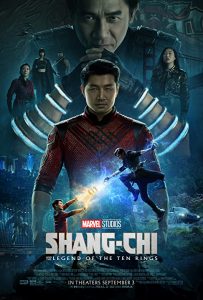 I’m not here for the idea of making links to a bunch of previous movies, but some quick and uncertain mental math tells me that
I’m not here for the idea of making links to a bunch of previous movies, but some quick and uncertain mental math tells me that